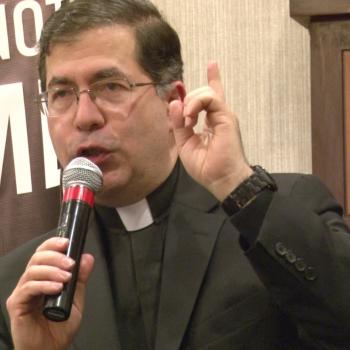In God Is Not One, you emphasize the differences between religions. You take this approach in opposition to authors who've emphasized the commonalities. But surely the truth is somewhere in the middle, is it not? Different religions share not only a "starting point," as you point out -- some big problem that needs a solution -- but can also be fairly and accurately examined through such comparative topics as social justice, or eschatology, or initiation rituals, or gender issues, or conservative vs. modern interpretations of ancient ideas and practices. What's the value of focusing on the differences between religions?
I do all sorts of comparisons in the book, including on topics such as social justice and rites of passage and the role of women. But each of those comparisons reveals fundamental differences. In terms of the value of my approach, I think it is valuable to see the religions as they are instead of how we hope them to be. And I think it is disrespectful to religious people for scholars to continue to tell them that the only beliefs and practices in their tradition that really matter are those that conform to Christianity or Judaism or whatever religion the authors affirm. Yes, there are commonalities as well as differences among the world's religions. But the differences are both more striking and more overlooked. Real tolerance and interreligious respect cannot be built on the basis of pretend pluralism. Real pluralism acknowledges diversity and difference.
What was the biggest challenge about writing the book? What surprised you most during the research and writing process?
I am a historian of American religions, so one of the biggest challenges was stretching myself beyond my comfort zone in the United States. Another was trying to figure out how to balance my objective voice as a dispassionate scholar of religions with a more subjective voice as an individual human being. Scholars of religion are trained to "bracket" their particular perspectives on the world's religions, but I wanted to "unbracket" myself here -- let the reader know which passages in the Quran bothered me and which thrilled me, for example.
What book(s) are you reading now? What's the most significant book you've read in the last three months?
For a course I am teaching on wandering, I am rereading Herbert Mason's translation of the Gilgamesh epic, which for my money is one of the greatest stories ever told -- a story of friendship and adventure and death and grief, with an emphasis throughout on how it is that we homo sapiens become truly human. The most significant book I read in the last six months was Reinhold Niebuhr's The Irony of American History -- a new edition with a wonderful introduction by my Boston University colleague Andrew Bacevich. We Americans today are all too sure that God is on our side in our various political and military projects. And Niebuhr is all about giving the lie to that hubris and self-deception.
Return to the Patheos Book Club for more resources and an on-line discussion on Stephen Prothero's God Is Not One.




